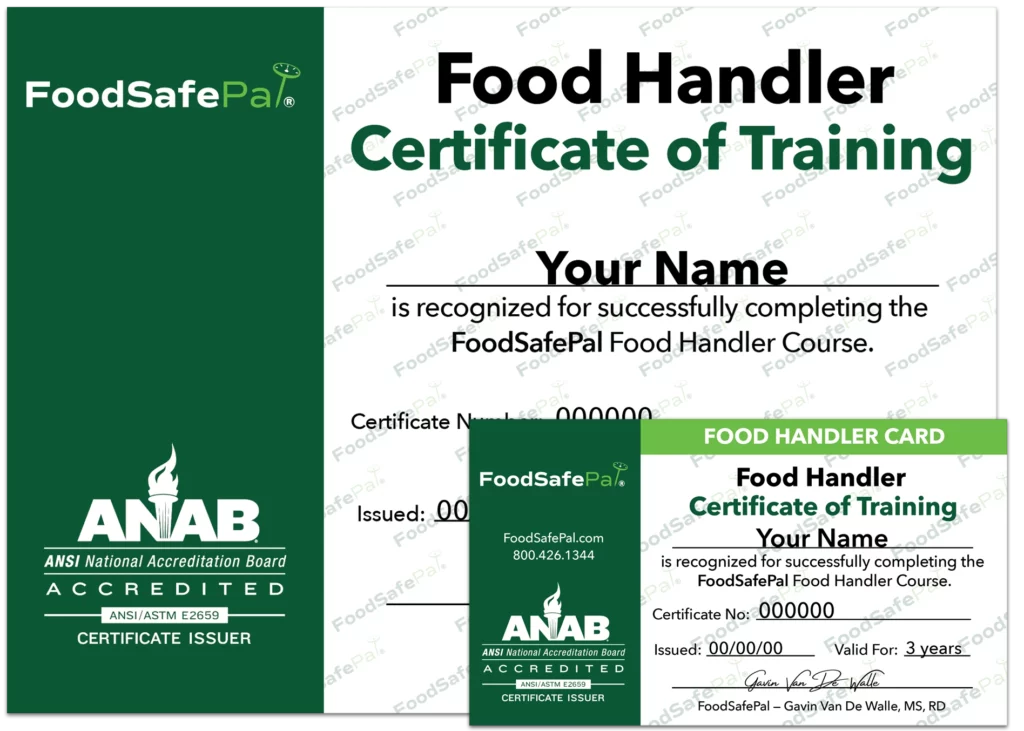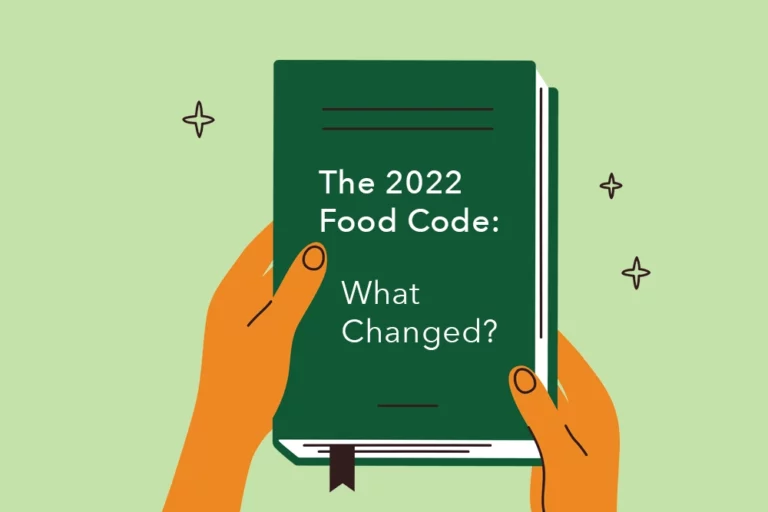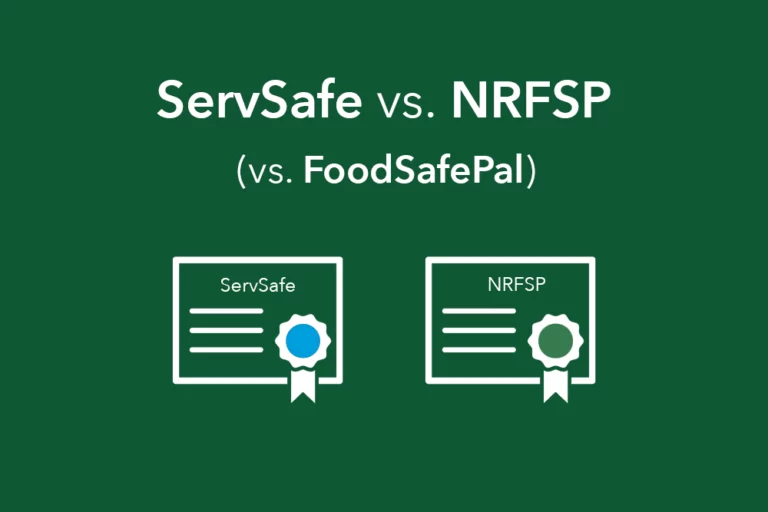What Is the Role of a Food Handler?
If you’re new to foodservice, you may have heard the title “food handler.”
While you might have some awareness of what a food a handler does, you’re not exactly sure of their role or whether you’re considered one.
This article explains everything you need to know about the role of a food handler, focusing on their part in ensuring food safety.

What are food handlers?
In general, a food handler or worker is a person who handles food or food-contact surfaces, such as utensils, dishes, tables, and equipment like a meat slicer.
This means that servers, bussers, dishwashers, baristas, bartenders, and barbacks, and of course, cooks or chefs, fit the definition of a food handler.
Food handlers work food establishments, which includes any operation that stores, prepares, packages, serves, vends, or otherwise provides food for human consumption.
Examples of food establishments include:
- restaurants
- bars
- catering operation
- retail food stores
- schools
- food stands
- mobile food trucks
- food bank
- farmers markets
- healthcare facilities, including nursing home and hospitals
Federal law requires that you be at least 14 years old to work at a food establishment.
Summary
A food handler is a anyone who handles food or food-contact surfaces, such as tables, dishes, utensils, and food equipment.
What food handlers do
Chefs, cooks, servers, and dishwashers have different responsibilities, but as food handlers, they are equally responsible for working with food and food-contact surfaces safely to prevent foodborne illnesses.
Cooks must make sure they prevent cross-contamination when preparing ingredients and menu items and cook food to its safe minimum internal temperature.
Cooks also ensure food that is being cold- or hot-held for service is maintaining a safe temperature.
To avoid cross-contamination, servers must serve prepared meals and drinks without touching the eating and drinking surfaces.
Dishwashers must make sure they don’t contaminate clean and sanitized surfaces when handling dirty dishes, while also handling and storing clean dishes safely to avoid recontaminating them.
Ensuring that the dishwasher reaches the correct temperature to effectively clean and sanitize, and following the correct procedures when using a three-compartment sink are other important responsibilities of dishwashers to ensure food safety.
These are just a few examples of the important roles food handlers play to keep customers — and each other — safe from foodborne illnesses.
Summary
Foodservice staff have different responsibilities depending on their job title, but as food handlers, they share the responsibility of ensuring food safety.
Food handlers may need a food handler card
Working with and around food or food-contact surfaces requires a basic understanding of food safety.
As such, many states, health departments, and employers require food handlers — regardless of job title — to earn a food handler card.
A food handler card — also known as a food handler certificate, license, or permit — proves that you have completed a course on food safety.
Food handler courses cover essential food safety topics, including:
- how food hazards make food unsafe
- good personal hygiene and handwashing
- time and temperature controls for food safety
- cross-contamination and cross-contact prevention
- cleaning and sanitizing procedures
To earn a food handler card, you must pass a test that covers these topics.
If you need to earn a food handler card for your job, here are the steps:
- Enroll with a valid food handler training provider. Not all food handler cards are the same — make sure to verify with your employer or health department that they will accept the training.
- Complete the course and pass the test. Complete the course lessons, and then use what you learned to pass the test. You’re usually allowed one free retake if you don’t pass the test the first time.
- Print, download, and share your food handler card. Print or save a copy of your earned food handler card, and share a copy with your manager, or if required, your health department.
Food handler cards generally expire three years from the date you earn it, but some states and health departments require that you renew sooner.
Many states, health departments, and food establishments accept food handler training that is ANSI-National Accreditation Board accredited (ANAB).
Earn or Renew Your Food Handler Card in 90 Minutes
Trusted by thousands. The fastest, most reliable way to meet your health department’s requirements.

FoodSafePal’s food handler training is ANSI-ANAB accredited, and you can earn your food handler card and certificate in as little as 90 minutes.
Summary
To ensure foodservice workers know how to handle safely, many states, health departments, and employers require food handlers to earn a food handler card before or shortly after employment.
The bottom line
A food handler is a anyone who handles food or food-contact surfaces, such as tables, dishes, utensils, and food equipment.
This means that dishwashers, bussers, servers, and cooks or chefs are food handlers.
An important role of all food handlers — no matter the job title — is to ensure food safety to keep customers safe from foodborne illnesses.
As such, many states, health departments, and employers require a food handler card to work at a food establishment.
To earn your food handler card, enroll in an approved course, complete the course, and pass the test.
Because it’s ANSI-ANAB-accredited, most states and employers accept FoodSafePal’s food handler training.
Earn or Renew Your Food Handler Card in 90 Minutes
Trusted by thousands. The fastest, most reliable way to meet your health department’s requirements.







